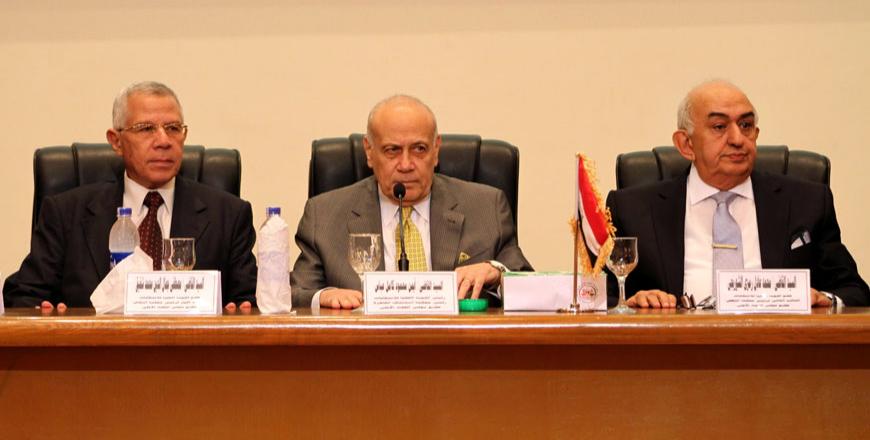You are here
‘Egypt court defers parliamentary election’
By Reuters - Mar 03,2015 - Last updated at Mar 03,2015
CAIRO — An Egyptian court on Tuesday deferred a long-awaited parliamentary election due in March indefinitely after another court declared the election law's provision on voting districts as unconstitutional, judicial sources said.
Egypt has been without a parliament since June 2012, when a court dissolved the democratically elected main chamber, reversing a major accomplishment of the 2011 uprising that toppled autocrat Hosni Mubarak.
This delay prolongs a period in which President Abdel Fattah Al Sisi has wielded sole legislative authority and slows Egypt's progress towards democracy since its first freely elected president was ousted by the army in 2013.
The decision by Egypt's administrative court came as expected after a ruling on Sunday by the supreme constitutional court against an article on voting districts in an election law which heralded a likely delay to the poll.
The first phase of voting was due to begin on March 22.
The spokesman for the high election committee, which said on Sunday it was working on a new timetable, told Reuters on Tuesday a new date would be set after the law had been amended.
Sisi directed his government to change the law within one month. Analysts say it could be several months before elections were held.
According to one expert, Sunday's ruling requires the government to merge or create new voting districts so that each contains an equal number of voters.
"If we assume the legal committee finishes this work within one month, a new period for nominations will have to be opened, which will delay us about three months," Hassan Nafaa, a professor of political science at Cairo University, said.
The election is the final step in a political roadmap the army announced in July 2013. Egypt's leaders say the election shows their commitment to democracy but critics say Sisi, who as army chief toppled his predecessor, has undermined freedoms gained after the Arab Spring revolt.
"The final result is the same: no parliament, and the continuation of the executive enjoying legislative authority without any checks or balances," wrote H.A. Hellyer, associate fellow at the Royal United Services Institute, following Sunday's ruling.
Egypt is trying to burnish its image in the run-up to an investors' summit later this month which the government sees as key to turning around an economy battered by four years of political turmoil.
Ahmed Imam, member of the opposition Strong Egypt Party which had announced it would boycott the election because it lacked credibility given a clampdown on political freedoms, said changes to the voting districts alone would not result in a fairer election.
Imam said that in order for the elections to be fair, no party should be excluded from running, the state should be neutral throughout and party lists, rather than individual candidates, should take precedence.
"Without these basic changes, whether the election is held now, a month or three months from now, the situation for us won't have changed."
Related Articles
Egypt's parliamentary polls look set to be delayed after a court ruled part of an elections law was unconstitutional and the main election committee said it was working on a new timetable for the long-awaited vote.
CAIRO — Egypt's legislative elections, the first since President Abdel Fattah Al Sisi took office, are to be contested in phases starting Oc
CAIRO — The newly appointed Egyptian Cabinet will remain in power if the parliament due to be elected in October and November approves its a

















